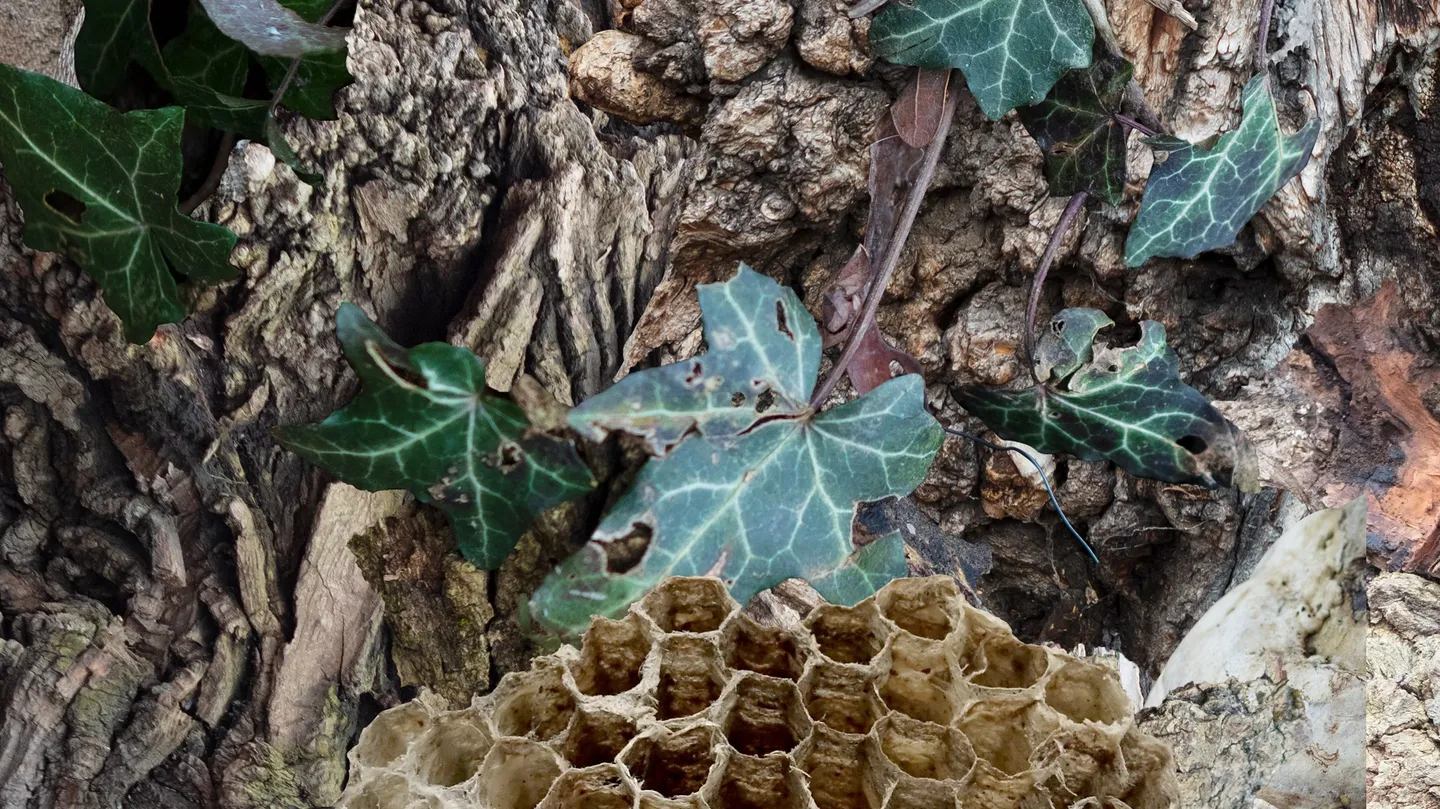
The Great Tree Piece
About artwork
Provenance
Tech info
About
What makes a tree a tree? What form can an encounter with it take? And what does the tree itself have to do with what we see? Claudia Larcher's film The Great Tree Piece addresses important questions that reveal themselves as soon as we begin to contemplate the endlessly complex relationship between humans and nature. The film consists of a single tracking shot from the crown of a tree to the underground, where humus, fungi and roots act as world makers in the darkness. The perspectives that emerge during this movement along the tree fan out in a myriad of ways. As with Albrecht Dürer's painting The Great Piece of Turf, which served as inspiration for the film, this is a study of nature that outgrows itself. Puzzle-like bark shapes are multiplied by AI until a fantastic chiaroscuro landscape emerges, revealing the materiality of the tree. When macro images of a bumblebee delve all the way into the individual cells and the film turns into a metamorphosing animation featuring red life fluids and minuscule pulsing forms, we rightfully begin to wonder at how comparable different life forms truly are. Our clear but often forgotten kinship with trees, which springs from the very fact of our being alive, is palpable throughout The Great Tree Piece. The movements of the seemingly immobile are laid bare as Larcher traces the worlds hidden in and beneath the supposedly inconspicuous apricot tree with the utmost attention. In the magical final sequence, in which we return to the crown of the tree from a macro perspective, we witness the embodiment of the leaves' inner movement. All manner of rustling, crackling and whispering fills the film, as if life itself was making itself heard: Perhaps that is what the life of a tree sounds like. (text by Ivana Miloš)





























